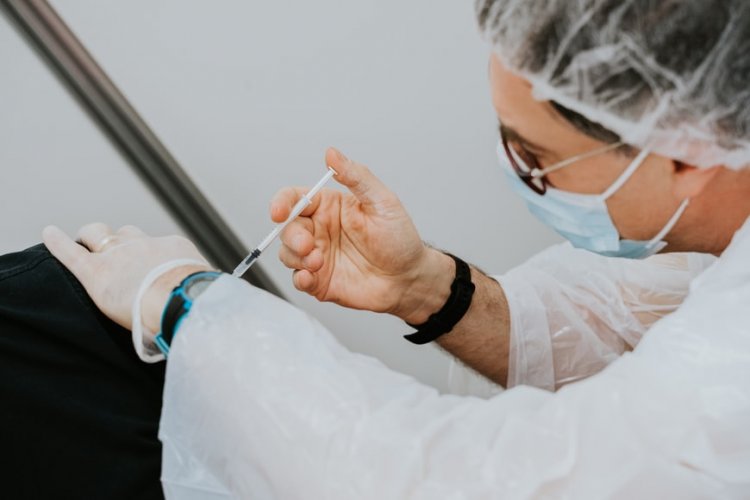To commemorate this day, let’s take a look back at some of the campaigns that have been launched to encourage vaccinations in recent pandemic years.
Every year on March 16, National Vaccination Day is honoured. The importance of vaccination and its role in public health are emphasised on this day. The most efficient approach of preventing highly infectious diseases is vaccination, sometimes known as immunisation. Immunisation is a proven method for controlling and eradicating life-threatening infectious diseases, according to the World Health Organization (WHO). Vaccination has a social and economic influence on the community and at a national scale, in addition in improving health and life expectancy. In India, the first dose of the oral polio vaccination was administered on this day in 1995.
Difference Between Vaccination And Immunisation
Despite the fact that Vaccination Day is also known as Immunisation Day, there is a key distinction between the two that few people are familiar with. Vaccination is the act of receiving a vaccine while immunisation is the state of being immune to a certain disease after being vaccinated. Vaccination is an important part of maintaining a country’s primary health status. As a result, commemorating National Vaccination Day is quite significant. Due to COVID-19, the world is beginning to aware of the need of vaccination and the World Health Organization began to stress the importance of major investment in vaccines and how countries can encourage vaccinations to all people in every country in 2021.
The Importance Of Vaccines
The most important thing we can do to protect ourselves and our children from infections is to be vaccinated. Every year, they save the lives of up to 3 million people around the world. People were previously unaware of the importance of vaccines, which they now realise. The entire country is currently hurrying to obtain a spot for covid-19 vaccination. Vaccination aids in the prevention of disease transmission and immunises people against specific diseases. They are completely safe and effective and also assist our body in fighting infections and germs. Vaccines have no long-term negative effects on the body, but it varies from person to person. It should be taken with caution by people who already have serious health problems. However, if people stop having vaccines, it’s possible that infectious diseases might spread again.
To commemorate this day, let’s take a look back at some of the campaigns that have been launched to encourage vaccinations in recent pandemic years.
Source: Newsd Media
#SamaSamaJaga Campaign

Malaysia began its nationwide immunisation programme on February 26, 2021, and it was positively accepted by many Malaysians. Domino’s Malaysia has decided to raise awareness about the value of expressing positivity. It seeks to remind its customers to keep spreading the love and caring as we take care of each other during these tough times by giving outstanding bargains through their Sama Sama Jaga Campaign. This campaign also marks the success of Domino’s first campaign, which began in July 2021 in full support of the nation’s vaccination efforts, and allow Malaysian who had been vaccinated to enjoy 2 regular pizza for RM19 simply by displaying their vaccination card.
Source: HYPE
#Erectometer Campaign

Australia Durex #Erectometer campaign, a gigantic, mobile billboard showcasing real-time New South Wales vaccination data, made its debut on September 29, 2021. The Erectometer’s erect Durex condom will achieve ‘vax climax’ once 80% of inhabitants have been double jabbed, rising and pointing to major vaccination milestones. The Durex Erectometer was intended to traverse Sydney’s streets between the excitement of free-DOM Day and stopped at some of the city’s ‘cheekiest’ spots. Durex also offered away free condoms across Australia to Australians who showed their full vaccination passport on the then-provided website (www.free-dom-day.com.au) when the Erectometer was romping the city’s streets.
Source: B&T
‘Bigger Picture’
Video by Dose of Good Ads on YouTube
Last year, Budweiser skipped the Superbowl, the National Football League’s annual playoff championship game. Budweiser, which has been a Superbowl staple for nearly four decades, opted to do so as a sign of how much COVID-19 has shaken things up. Rather than advertising their product, they created a 30-second film, ‘Bigger Picture,’ in which they pledged support for vaccine awareness so that everyone can “see our Buds again.” The film, which aired digitally in the week leading up to the game, celebrated Americans’ perseverance since 2020, focusing on a group of healthcare workers who were among the first to receive the vaccination. Budweiser donated a portion of its air time in 2021 to The Ad Council and the CDC’s vaccine education project, reallocating its investment in a Super Bowl spot to fund vaccine awareness efforts throughout the year. Throughout 2021, the company ran more vaccine education and awareness initiatives.
Source: Campaign Live
Share Your ‘Vaxxing Vibe’

On May 21, 2021, Tinder and White House teamed together to launch an in-app promoting vaccines and allowing Tinder users to display their vaccine status and support on their Tinder profiles. The pro-vaccination message is especially important for users of an app that is all about meeting new people. As continual lockdowns affected the country and would-be daters look forward to actually meeting their matches offline, the campaign attempted to urge these Gen Z members to get vaccinated. Tinder also assisted them in locating the closest vaccination clinic and created vaccine stickers to make sharing their ‘vaxxing vibe’ simple and entertaining.
Source: CMO
Get Back What You Love
Video by Google on YouTube
With their ‘Get Back To What You Love’ campaign, launched on March 23, 2021, the tech behemoth showed its support for the COVID-19 vaccine. The video ad campaign depicts search phases used during the pandemic and how they may be altered as a result of vaccinations. The ad illustrated the world’s move from virtual events to in-person meetings. The final clip showed the words, ‘Covid Vaccinations Near Me’, being typed and finished with Google logo and a link to the Centers for Disease Control and Pervention’s website.
Source: The University of Texas
‘Getting Back Outdoor, It’s Worth A Shot’

oOh!media has launched a new data-driven Out of Home campaign in 2021 to encourage Australians to obtain their COVID-19 vaccinations as soon as possible so they may return to the great outdoors. The campaign, which is running across traditional and digital outdoor signs across Australia, used Australian Government data to inform the public on vaccination rates in each state, in a way that highlights out-of-home advertising features including dynamic copy targeted to local suburbs. Cathy O’Connor, the CEO of oOh!media, stated that the company intended to help governments with their vaccination efforts and get life back to normal as soon as possible.
Source: oOh!media
‘This Is Our Shot’

Walgreens partnered with John Legend for the ‘This Is Our Shot’ campaign, which aims to overcome vaccination apprehension and persuade Americans that the COVID-19 vaccine is the best way to end the pandemic. Legend was selected as the campaign’s spokesperson because he supports the retailer’s aim to tackle the issues of individuals who are reluctant to obtain the vaccine, as well as its dedication to equal distribution. In addition to that, Walgreens has a bigger strategy to encourage vaccinations that goes beyond the message. The Vaccine Equity Initiative, for example, was established to provide educational programmes and collaborations with communities and churches.
Source: Drug Topic
Conclusion
Vaccines have a wide and far-reaching influence that is not always quantified, studied, or conveyed. Historically, the stated benefits of vaccination were to reduce infection-related morbidity and death, and these benefits continue to motivate the development of new vaccines, particularly in preparation for outbreaks or diseases that affect the poorest members of society. There are still challenges in getting vaccines to all children and vulnerable people around the world, particularly those in communities that are difficult to reach geographically, politically, or culturally, and these challenges can only be overcome with continued international, national, and individual commitment and dedication to this endeavour.

















